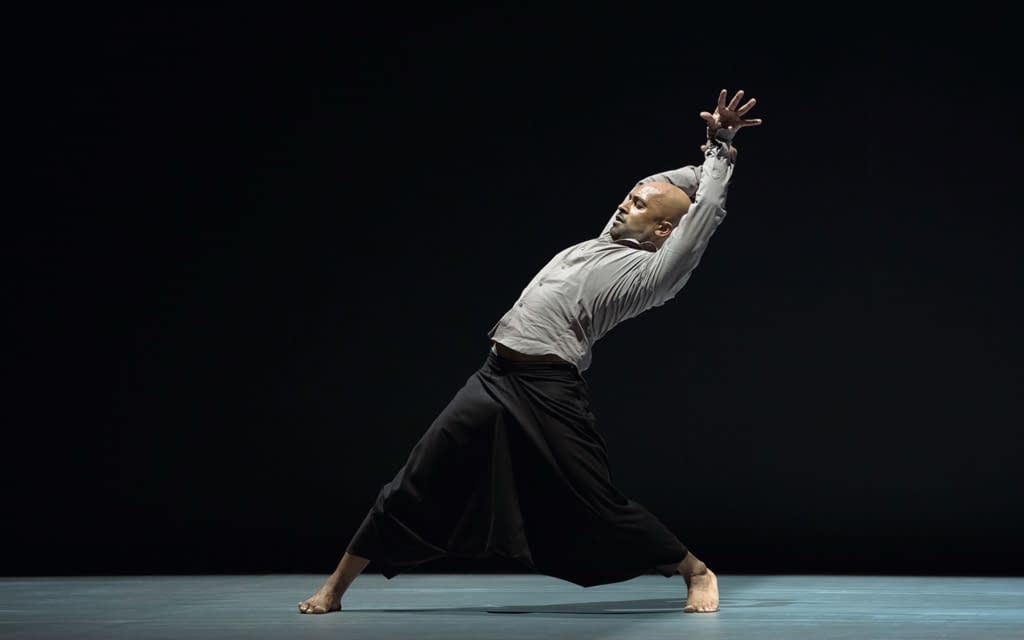One of the most celebrated and highly regarded dance makers working today, Sadler’s Wells Associate Artist Akram Khan has announced a new production, Xenos, which will mark his final performances as a dancer in a full-length piece. The production, commissioned by 14-18 NOW, the UK’s arts programme for the First World War centenary, is inspired by Greek mythology with a particular focus on the myth of Prometheus, and by specific events from the First World War.
Xenos, co-produced by Sadler’s Wells, will premiere in 2018, sixteen years after the debut of Khan’s acclaimed first full-length production Kaash. Sadler’s Wells will present the UK premiere from 29 May - 9 June, as part of its Spring 2018 Season, and the production’s international tour.
Xenos, meaning ‘stranger’ or ‘foreigner’, seeks to express tales of loss, hope and redemption, through a movement language that shifts between classical kathak and contemporary dance. Working from a text by acclaimed playwright Jordan Tannahill, alongside his world-class team of collaborators Khan will draw on the story of a shell-shocked Indian soldier trapped in a trench during the First World War, through the lens of the myth of Prometheus - the Titan who stole fire and gave it to mankind.
Akram Khan said, “My interest lies in both the mythological body and the technological body. I want to explore our connection with our past and our future, investigating specific questions that confront me more and more every day, such as how does ‘myth’ play a part in today’s society?
“Xenos explores the central question at the heart of the myth – was Prometheus’ gift the blessing or the curse of mankind? And at its centre is a colonial soldier, one of over 4 million men mobilised on behalf of the British empire. 1.5 million of these recruits were Indian, mostly peasant-warriors from North and North-Western India, and they fought and died in Europe, Africa and the Middle East. Many sepoys were buried abroad, while those who returned home, often mutilated and traumatised, were estranged from their own histories, homelands, and countrymen, becoming xenoi.
“So, do we need to tell other people’s stories just in case they vanish? Who are the ‘other’ people? Are stories of human journeys told and retold again and again, so we can eventually learn from our mistakes? Who are ‘we’, a collective or many individuals? What makes us human? Are we still human?”
This autumn Khan’s work has been seen on the Sadler’s Wells stage with English National Ballet’s reprisal of Giselle, and he will curate and perform in the theatre’s inaugural presentation of the Darbar Festival, the established celebration of classical Indian music and dance from 9-12 November. Also in November, he presents a new Channel 4 documentary Can We Live With Robots? In this unique project for the channel, he explores the impact robots and AI are having today on human relationships, and meets the cutting-edge robots of the future.



